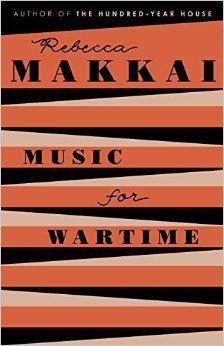Score: 3.5/5
Chicago-based novelist and short story writer Rebecca Makkai, through Viking, published a collection of 17 works titled “Music For Wartime.”
Its stories contain the obvious themes of music and war as well as art, entertainment and love that feed into one another despite time jumps and style shifts. Readers feel characters’ excitement, anxiety, self-loathing, confusion and/or betrayal from start to finish. The collection is well-constructed, and its characters are well-developed.
In “The Worst You Ever Feel,” young Aaron joins in performance with a significant violinist at his parent’s elegant house party. He imagines pictures that coincide with the notes and point to question his father’s true intentions in surviving the Iron Guard’s rampage and leaving Romania years ago.
“The Briefcase” makes a compelling case for a refugee who takes on a new identity after stealing a newly imprisoned professor’s briefcase and using its contents for further disguise and survival. His act becomes a lifestyle for over a year and takes a turn that leaves him to question his place in the world.
“Couple of Lovers on a Red Background” involves a bitter single woman who grew up with a passion and talent for classical music instilled by her father from a young age.
Mysteriously, a legendary 18th century composer resurrects in her apartment, and the two begin a private relationship while the woman attempts to keep the composer from finding out reality and plans out future possibilities of getting back together with her ex-boyfriend.
It’s a decent-sized curveball in the collection that brings on slight nausea at the idea in order to prove a point. The story seems to motion an exaggerated societal mindset of handling relationships and the unstable thought processes that have a way crawling into some break ups.
In “Painted Ocean, Painted Ship,” readers meet English assistant professor Alex Moore whose career and eventual marriage are on the line as she spends a drunken week over analyzing every decision she’s made until this point. Moore sulks in insecurity and personal failure until the people she’s least concerned with finally step in.
The narration goes on to conclude: “The point, the moral, was how easy it was to make assumptions, how deadly your mistakes could be. How in failing to recognize something, you could harm it or kill it or at least fail to save it.”
Consider “Music For Wartime” to be an invitation. Makkai’s short stories pack a punch, and each one appears novelesque.
Review: Rebecca Makkai – ‘Music for Wartime’
By Taylor Wiley
July 1, 2015

More to Discover










